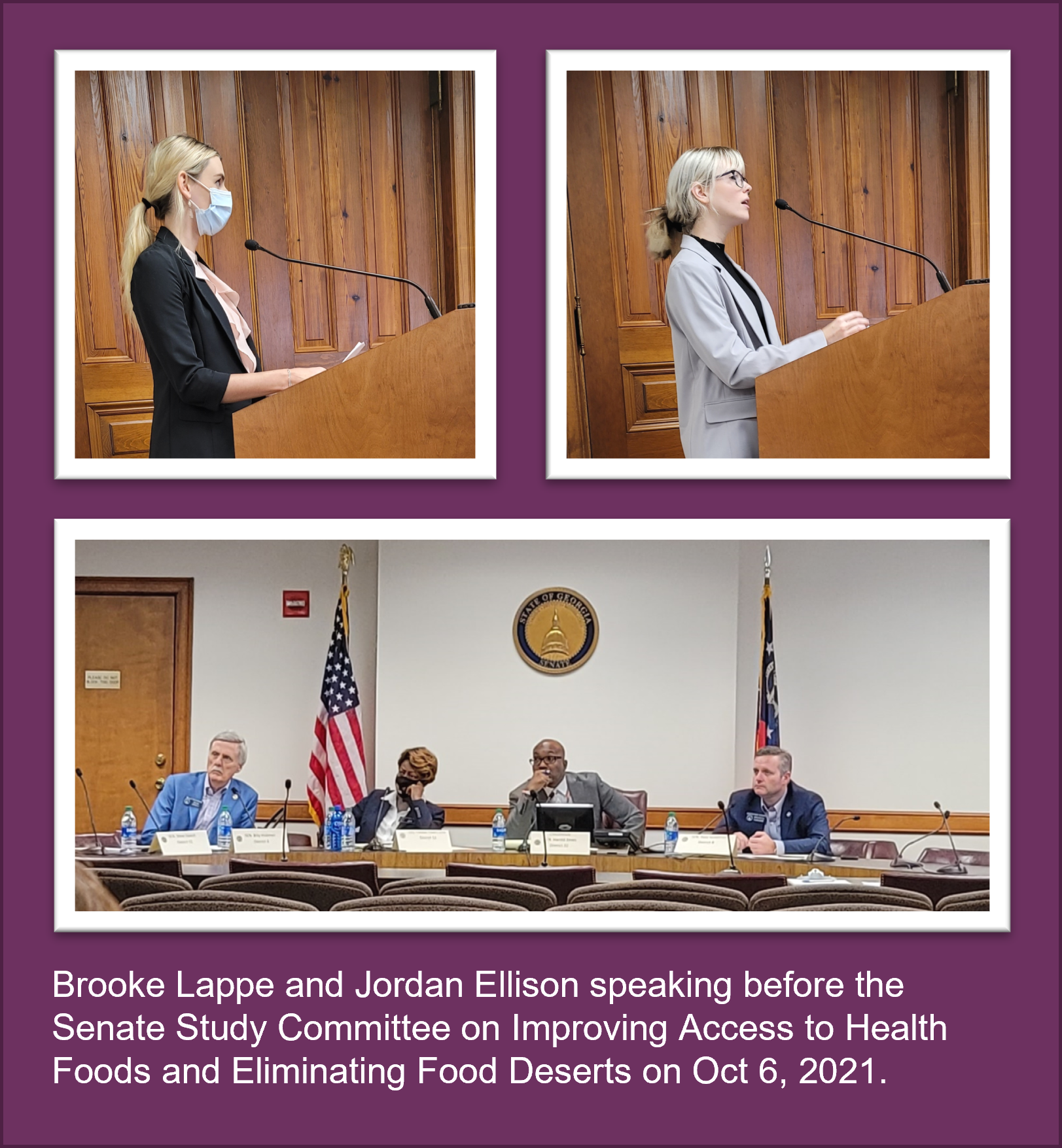Many of us buy food from the store and don’t give it a second thought. But what if you can’t afford that food? And what about the impact of our food choices on our health, our lives, the economy, and the environment?
1 in 8 Georgians are food insecure. While this number went up during the pandemic, it had stayed approximately the same for a while. We need to start thinking about solutions to eliminate food insecurity.
The average person is still under the aberrant delusion that food should be somebody else’s responsibility until I’m ready to eat it.
— Joel Salatin
Many parts of the food cycle are in danger right now and they are all interconnected:
Over 1 in 8 Georgians are food insecure. Families living with food insecurity often have to choose between paying bills or buying food. This has pile on effects. Hunger and related stress make it difficult to perform well in school or at a job. Food insecurity is linked with numerous health conditions including diabetes, hypertension, and depression. The cost of managing these conditions places additional stress on families.
Farms and agriculture are struggling because of changing weather patterns and severe storms. Agriculture is $73B industry in Georgia employing 1 in 7 Georgians.
Over 151 lbs of food is wasted per person per year in Georgia.
Food waste is a large contributor greenhouse gas emissions.
Greenhouse gases make the weather worse, which makes food production more unstable, which adversely effects farmers and farms, which makes food scarcer, which drives up the cost of food, which makes more people food insecure, and on and on we go in a negative spiral.
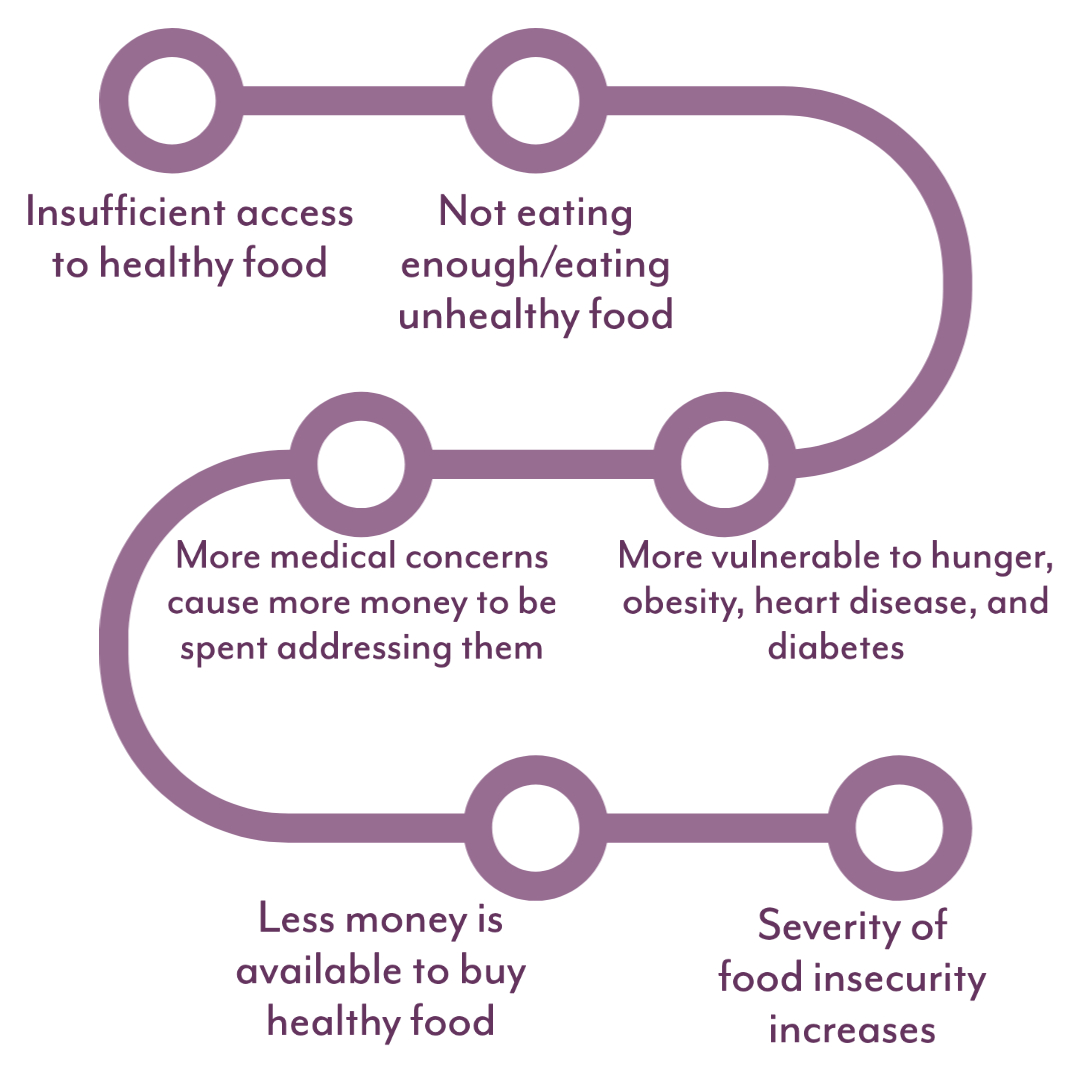
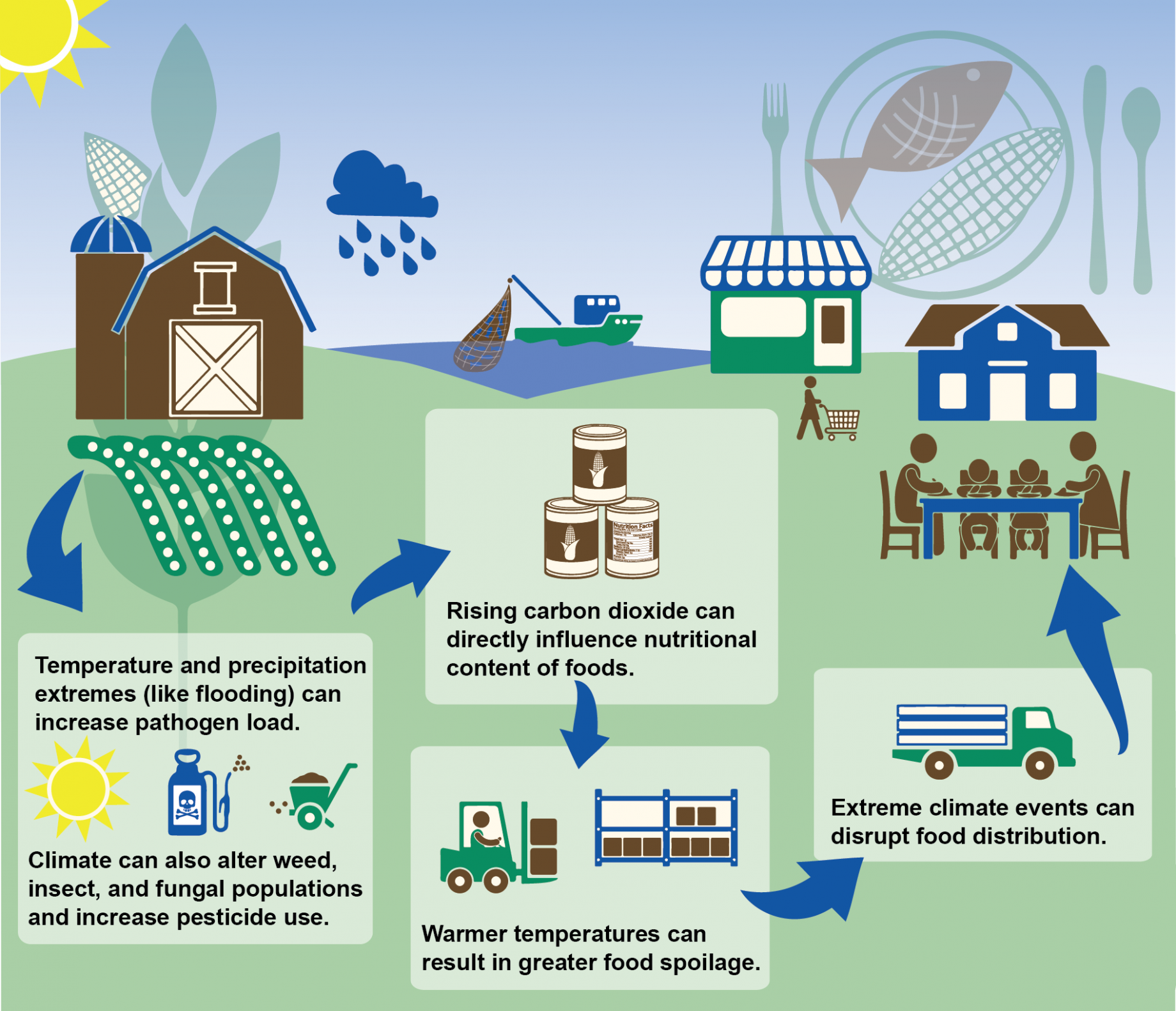
Making progress in any area that impacts the true cost of food should be reflected as a win in the fight to end food insecurity. Looking at the research, we propose some universal metrics that highlight food supply, access, and utilization. Progress in these areas increase stability of food security over time.
To think about the categories. Supply effects the ability to produce and grow food (i.e. “Is there lettuce in existence?”) Access effects the ability to obtain food (i.e. “Can I purchase the lettuce?”). Utilization measures if the food is being consumed (i.e. “Am I eating the lettuce?”)
These help to highlight what area of food insecurity a program impacts and understand how it fits in the big picture.
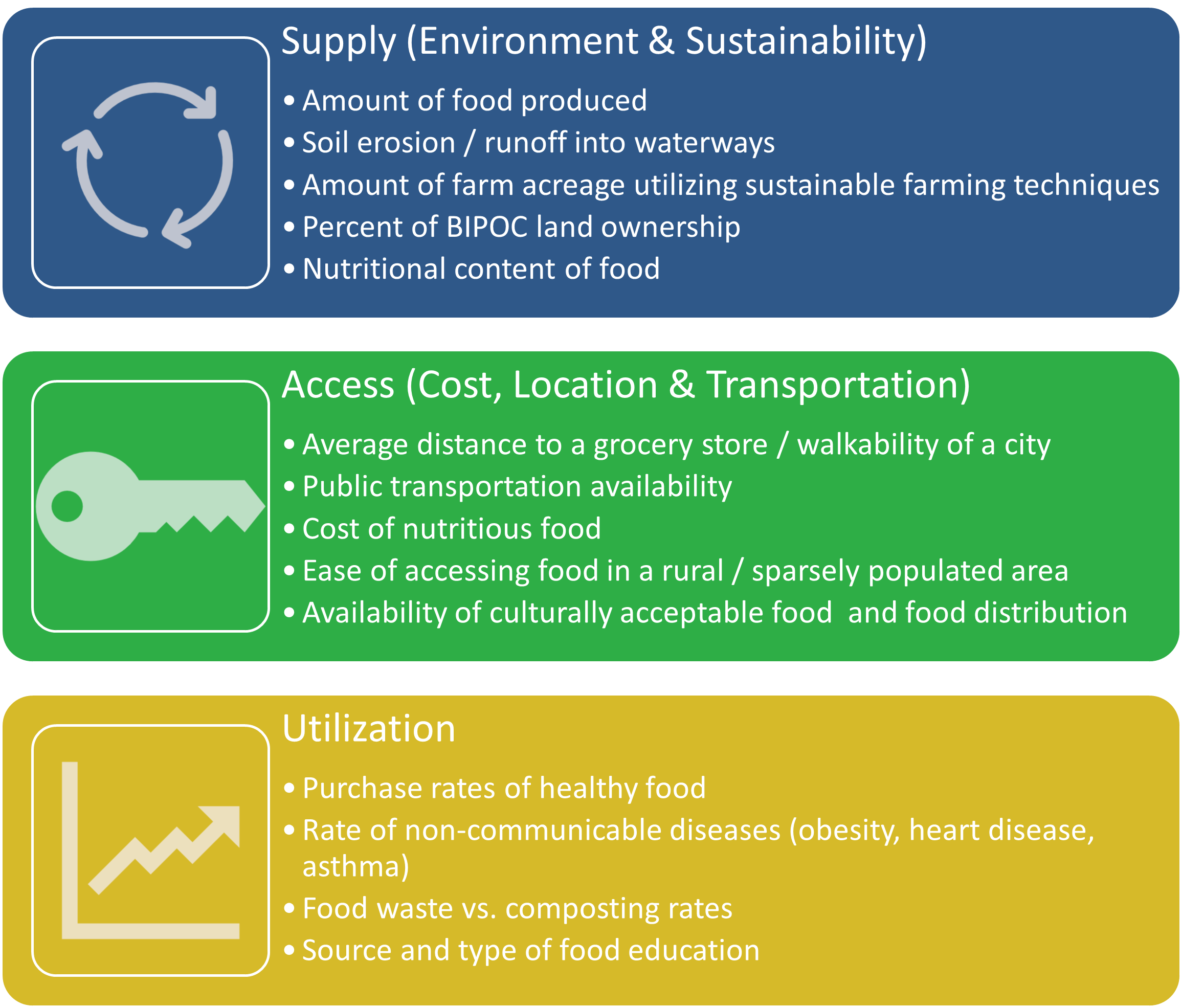
What is Sci4Ga Doing
Georgia Campus Food and Nutrition Security Summit – 2024
Science for Georgia and Georgia State University convened the Georgia Campus Food and Nutrition Security Summit on October 24, 2024. The summit brought together stakeholders from 17 universities and 5 non-profit organizations across Georgia. They discussed experiences addressing food insecurity on their respective campuses and in the community.
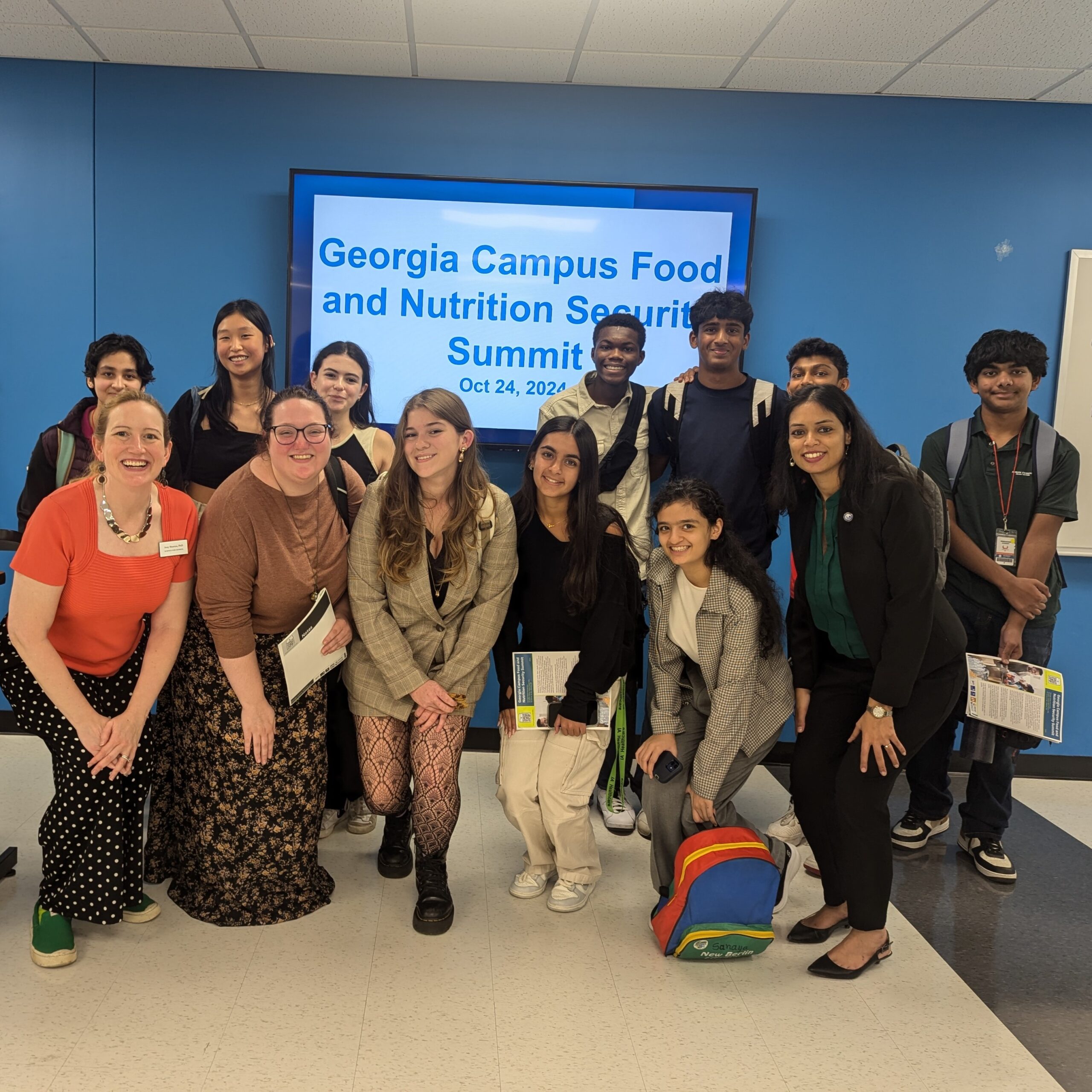
Food Insecurity Round Table 2021
On Sept 10, 2021, Science for Georgia and their presenting partner, Inspire Brands Foundation, hosted a food insecurity roundtable. Over 4 hours, approximately 25 people who work in food organizations in Georgia, met, reviewed the state of food insecurity, and identified 3 evidence-based solutions that are short-term steps toward a long-term solution to ending limited or uncertain access to adequate food.
Personal Actions to Take
Food insecurity seems like a many-headed hydra where we cut off one head and two more grow in its place.
It is not your responsibility to finish the work of perfecting the world, but you are not free to desist from it either.
— Rabbi Tarfon, Pirke Avot 2:21
Right now, today, you can make small changes to have a positive impact on food security. Choosing to do any of the suggestions below will be the first step toward a more food secure planet.
Advocate
Want to do more? Good news, we can science our way to long term solutions!
That which can be measured can be improved. In order to move the needle on food insecurity it is important to understand the true cost of food from growth to transport to access.
Recently the Rockefeller Foundation produced several reports including one on Food Policy and another on the True Cost of Food. They proposed looking at costs associated with health (health problems caused by poor diet), subsidies for food producers, livelihoods (occupational health and safety of producers), environment (emissions, water use, soil erosion), and biodiversity (land use, pollution).
Immediate Impact – Increased Access & Affordability
From government programs to supporting food banks, there are many ways you can make a difference.
Reduce & Compost Food Waste
A majority of food waste goes to landfills, perpetuating a cycle of climate change and increased food insecurity. Learn how to reduce food waste and the importance of composting.
Community Capacity Building
Develop local community task forces that coordinate activities, information, and access to programs addressing food insecurity across Georgia.
That Which Can be Measured Can be Improved
Create an aggregated food-data system that measures metrics across all aspect of programs addressing food insecurity in Georgia. This allows measurement of progress, identification of impactful programs, and helps policy makers learn which programs serve Georgians best.
Download an overview of suggested metrics
Support Farm to School Programs
These programs are examples of public-private partnerships that uplift local farmers, provide nutritional food to children in need, and educate families about nutrition.


